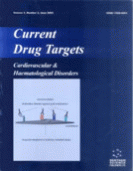Abstract
Infectious diseases still represent a major cause of mortality in man. Failure of the immune system to eradicate pathogens may result in serious invasive infections. Increasing numbers of immunocompromised patients, ineffective treatment and the emergence of drug-resistant pathogens represent the underlying problems. The focus of this review is on the pathogenesis of systemic fungal disease and the development of novel immunotherapeutic approaches. A comprehensive understanding of host-pathogen interactions is required for manipulation of immune responses to direct anti-fungal immunity. The potential of growth factor- and antibody-based therapeutics for invasive fungal disease are discussed. Recent advances in antibody technology may provide new strategies for developing antibody-based anti-fungal therapies. Development of fungal disease is related primarily to impaired host defense mechanisms, which emphasizes the importance of immunorestorative therapy in immunocompromised individuals. Controlled comparative clinical research is needed to evaluate the efficacy of novel immunotherapies, which provide prospects for the future management of invasive fungal disease.
Keywords: immunotherapy, fungal disease, candida, aspergillus, anti-fungal drugs, antibody, growth factors
 1
1













